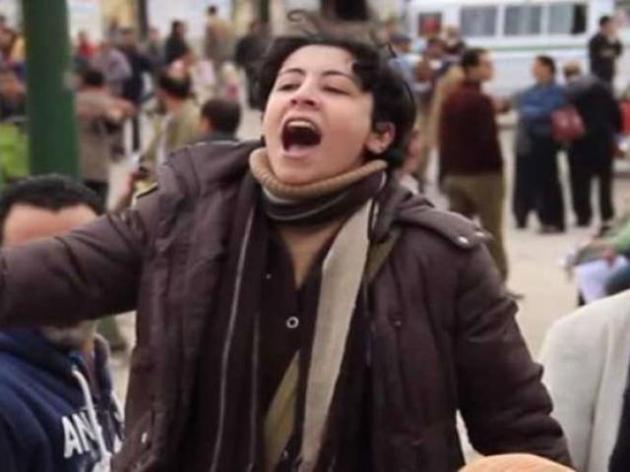**A version of this piece was published on the Mada Masr blog.
The metallic sound of the instrument as it hits the enamel, to clean it. I close my eyes beneath the plastic goggles I’ve been given, and think about the quiet judgement of the Eastern European hygienist whose hands as in my mouth as I obediently move my head to the right, or slightly to the left, or open wider or bite down, which feels slightly more dignified.
Her teeth, of course, are perfect.
In the moments where it is hurts (“when there is sensitivity, just raise your hand, and I will stop,” she had said) I think of greater pains, pains I have been spared.
By the time the dentist herself sees me she has heard that I am a smoker. Unlike the hygienist, she doesn’t comment on how bad the habit is, but she doesn’t need to, the information is there in her voice. We go over my history and I tell her I have had a root canal done, and that it was done in Egypt.
“That should be…interesting,” she says. I tell her the Egyptian dentist had done a good job and she looks skeptical. She says her husband really wants to visit Egypt but every time they plan for it the State Department’s advice is to stay away.
I open my mouth for the exam, a bit relieved that my teeth have just been cleaned. This is as good as it can get. I’ve put on my best dress for her, and shined my metaphorical shoes (or, rather, Irene, the dental hygienist, did).
She pokes around the tooth that had been whittled down in Cairo for the root canal, replaced with a crown (what a term; the dental industry has a dark humor).
“Oh! It looks good! I like it!” Her surprise is genuine.
If I were a different person, or if she didn’t have her hands in my mouth, I would say something sarcastic like “Yes, we have real doctors there, too.”
I remember the dreaded root canal. It was done sometime in 2013 although I’m not sure where it was on the political calendar that dominates the narrative of my life in Cairo. Was it after the coup? Was it before the massacre? Was there a curfew?
The dentist was a young guy, friendly and funny but with that distinct reserve that I’ve felt from slightly pious men. My brother, who had just finished dental school, was working at his clinic, a sort of residency. He assisted on my procedure, in the white coat that I had previously only seen thrown across the back seat of the car.
“Why are you looking at me like that?” by brother asks me at some point, again with instruments in my mouth.
“She can’t believe her own eyes,” the dentist says for me, and he’s right. My brother has been functioning as an adult for years but in my mind, I still understand him to be an adolescent. I realize how quickly my inner view needs to change.
I remember I went home and watched Teer Enta, and that home was downtown.
In New York the doctor has found a cavity, a big one, where I suspected it was. “Oh, we’re gonna be seeing you again.”
Her deferred visit to Egypt comes up again as I am leaving, and for the first time in these years of unknowing, I cannot say that it’s not as dangerous as one thinks just from watching the news. I cannot tell her to go.
I wonder if my view is too vulnerable to the screens, the timelines that are filled with violence and, newly, the despair and exhaustion of advocates in Cairo, and also, horribly, the glee that others are taking in their pain. Amidst that day’s bad news is the death of Italian student Giulio Regeni.
“The world can’t end every day, Egypt. We need a break” – a friend writes on Facebook a few hours later.
Waves of people have disappeared, been killed, too many to count, too many to mourn properly. But Giulio’s death makes us confront the effect of this violence, of witnessing it, on our understanding of the world. Even as we fight this reality, it is with a knowledge that yes, deaths like this will happen today, and tomorrow – we expect them to. But Giulio is not from this world, not really. He is a visitor, and in his world, in his family’s world, people do not get killed jailed disappeared in the hundreds, month by month. His death shows us an outrage with a freshness which we have long forgotten, just as it stuns us with the realization of how we have changed.
To the left, Cairenes hold signs up saying “Giulio was one of us and he was killed like one of us.” People gathered at the Italian embassy in Cairo on Saturday to lay flowers and pay respect to the memory of Giulio Regini. Photos courtesy of Alex Ortiz and Sarah Mohsen.




